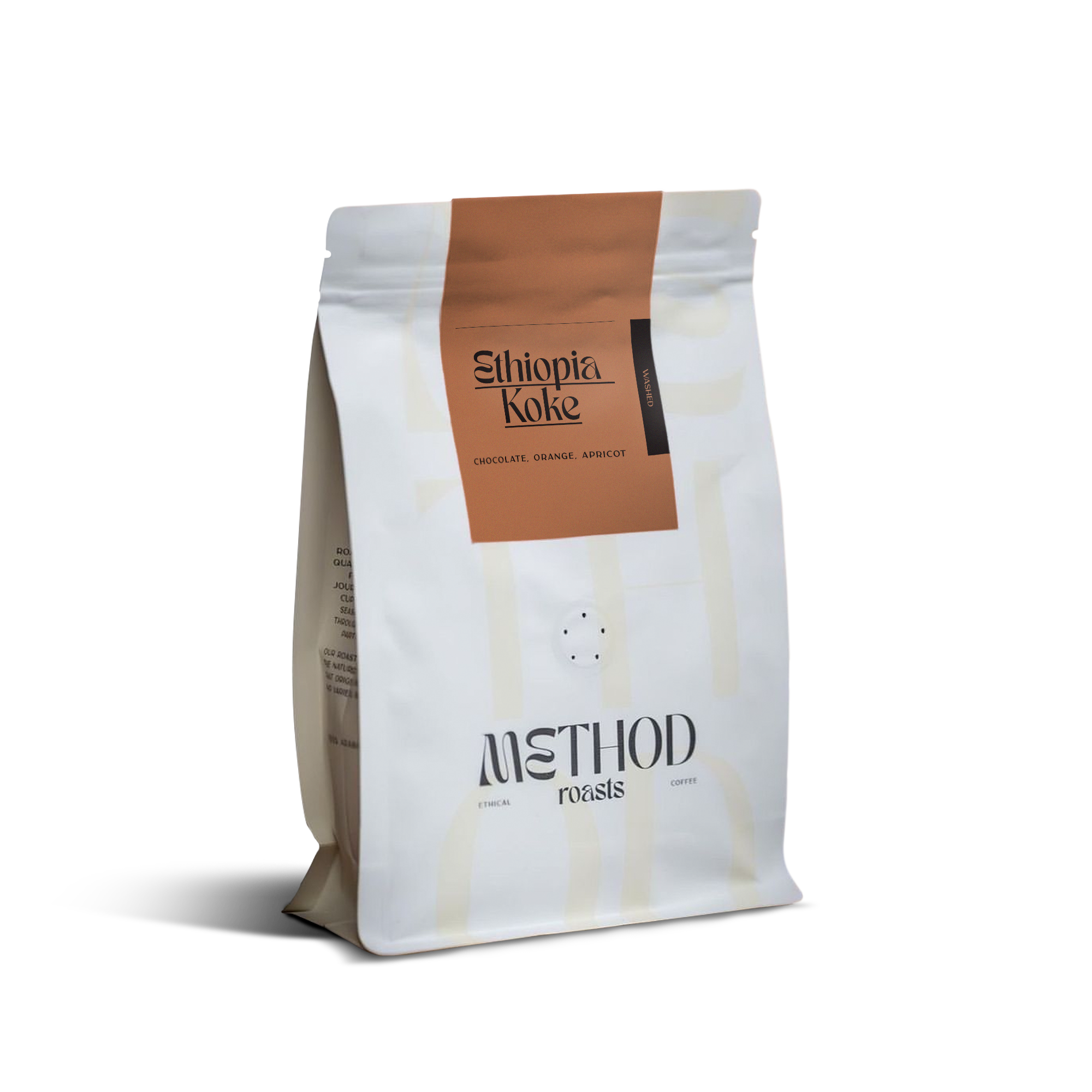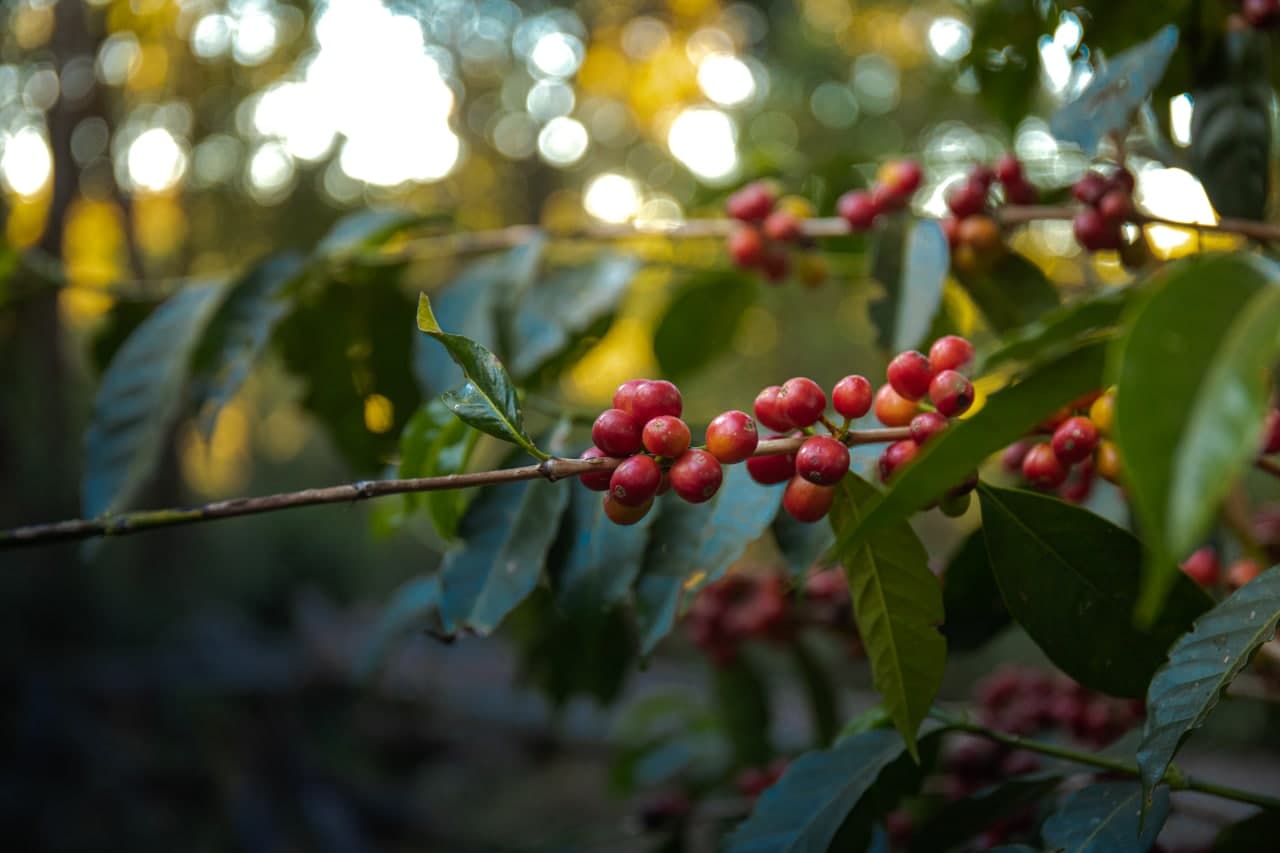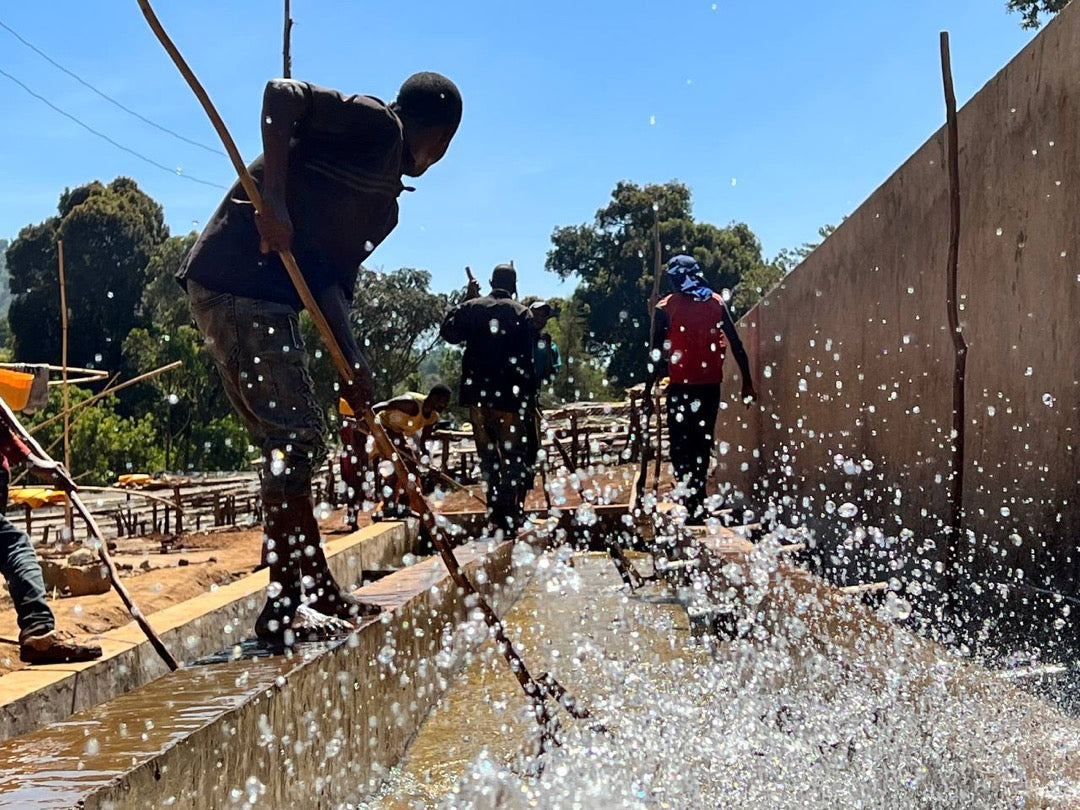
Ethiopia - Koke
TASTING NOTES:
With notes of cherry, apricot and orange blossom Koke is delicate, complex with good sweetness and flavour.

PRODUCER
Koke washing station
REGION
Kochere, Southern Sidamo
HARVEST
November - January
ALTITUDE
1870 - 1950 MASL
VARIETY
Dega, Kudhume, Wolisho
PROCESS
Washed and sun dried
ABOUT
As is typical in Ethiopia, this coffee was grown by smallholders operating on a tiny scale. Growers hand-pick ripe, red cherry then deliver to the washing station for processing.
At Koke station the lots are separated by elevation; our selection was picked from the highest grown coffees - the quality shines through.
Brewing Advice
Our Packaging
Both our 250g bags and KG bags are 100% plastic-free and compostable.
Manufactured with best-in-class sustainable materials the bags are paper with a Plantcell™ compostable laminate that acts as a freshness barrier.

Varietals

Washed Processing at Koke Station

